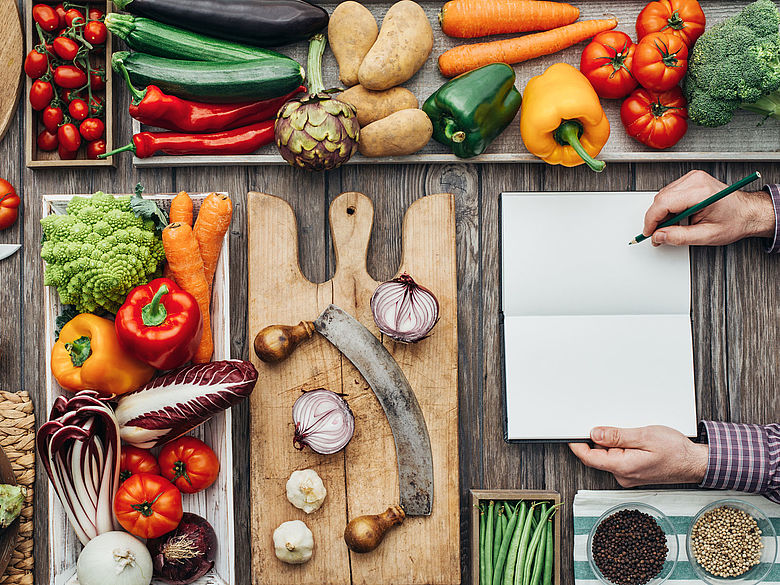Apart from hygiene we can be even more attentive to the food we consuming these days. To make your body ready to protect you you can try an anti inflammatory diet. Foods to include in an anti-inflammatory diet should combine a variety of foods that:
- Are rich in nutrients
- Provide a range of antioxidants
- Contain healthful fats
Foods that may help manage inflammation:
- Oily fish, such as tuna and salmon
- Fruits, such as blueberries, blackberries, strawberries, and cherries
- Vegetables, including kale, spinach and broccoli
- Beans, nuts and seeds(stay moderate)
- Olives and olive oil. Extra virgin olive oil is less refined and processed. It retains more nutrients than standard varieties. For optimal freshness and quality, opt for oils packaged in dark bottles with a certification or seal (COOC, North American Olive Oil Seal, DOP) and harvest date close to the purchase date.
- Fibre
It is worth remembering that:
- There's no single food to boost a your health. It is important to include a variety of healthful ingredients in the diet.
- Fresh, simple ingredients are best. Processing can change the nutritional content of foods. For example, raw or moderate cooked vegetables will give you more that fully cooked.
- Check the labels of premade foods. While cocoa can be a good choice, for example, the products that contain cocoa often also contain sugar and fat.
- A colorful plate will provide a range of antioxidants and other nutrients. Be sure to vary the colors of fruits and vegetables.
- Spice up your life. Ginger and turmeric help to boost your immune system for thousands years. Cayenne pepper will not only add taste but contribute to your digestive health. Garlic is great for any common cold prevention. Add cinnamon to your latte and enjoy flavor and medicinal properties of it.
Think again about gut health.
- Prebiotic and probiotics can be added. Add Sauerkraut, pineapples and kefir to your menu.
- Drink more water. The truth is that water helps to carry oxygen to body cells, which results in properly functioning systems. It also works in removing toxins from the body, so drinking more of it could help prevent toxins from building up and having a negative impact on your immune system.
- Eat fresh. Avoid madness in supermarkets. Try to eat fresh prepared food and store it right. For example, milk doesn't belong to the shelf in the door of your fridge, right place for it is a top shelf. Cutting your fruits and veggies before storing it isn't recommended, but if you must cut your produce before you plan on eating it, store them in glass storage in paper towels to keep them fresh and moisture free.
Foods to avoid to create an anti-inflammatory environment for your body you should avoid or limit their intake of:
- soda and other high sucrose drinks (even sugar free)
- foods with added sugar or salt
- unhealthy oils (canola, soybean, sunflower, peanut)
- processed carbs, which are present in white bread, white pasta, and many baked goods
- processed snack foods, such as chips and crackers * premade desserts, such as cookies, candy, and ice cream
- excess alcohol
In addition, people may find it beneficial to limit their intake of the following:
- Gluten: Some people experience an inflammatory reaction when they consume gluten. A gluten-free diet can be restrictive, and it is not suitable for everyone. However, if a person suspects that gluten is triggering symptoms, they may wish to consider eliminating it for a while to see if their symptoms improve.
- Nightshades: Plants belonging to the nightshade family, such as tomatoes, eggplants, peppers, and potatoes, seem to trigger flares in some people with inflammatory diseases. There is limited evidence to confirm this effect, but a person can try cutting nightshades from the diet for 2-3 weeks to see if their symptoms improve.
- Carbohydrates: There is some evidence that a high carb diet, even when the carbs are healthful, may promote inflammation in some people. However, some carb-rich foods, such as sweet potatoes and whole grains, are excellent sources of antioxidants and other nutrients. Salt. There are conflicting reports about just how bad excess salt is for us. We know it causes fluid retention - one of many factors that can lead to high blood pressure. Also, corticosteroids, often used to treat inflammation, can cause the body to retain more sodium. So play it safe and hold the salt when possible.
If you would like to take it a step further, get in contact with on of our trainers who can tailor an approach to help keep you ontop of your health goals.
*Disclaimer: Individual results vary based on agreed goals. Click here for details.

